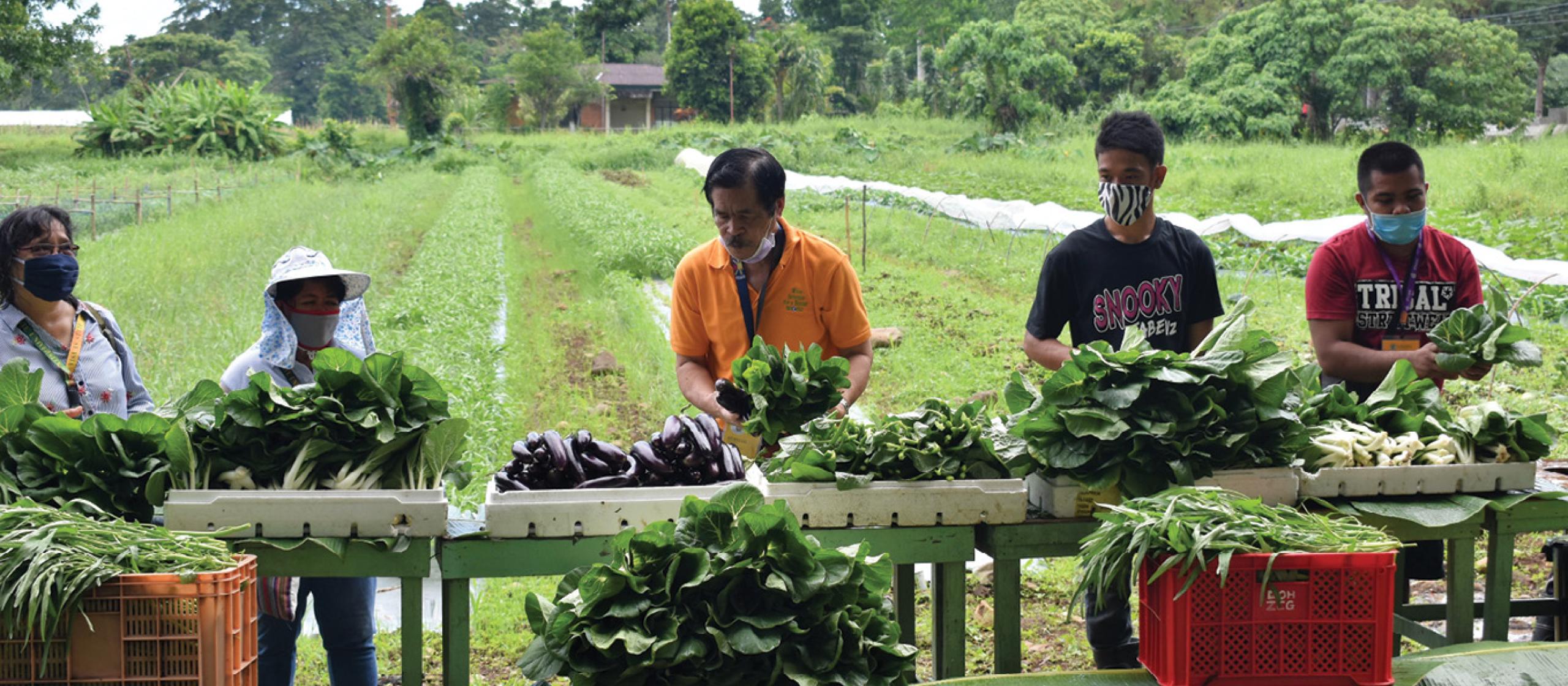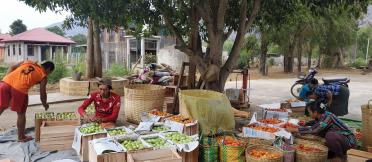- HomeHome
-
About ACIAR
- Our work
- Our people
-
Corporate information
- ACIAR Audit Committee
- Commission for International Agricultural Research
- Policy Advisory Council
- Agency reviews
- Executive remuneration disclosure
- Freedom of information (FOI)
- Gifts and benefits register
- Information publication scheme
- List of new agency files
- Contracts
- Legal services expenditure
- Privacy impact assessment register
- Commonwealth Child Safe Framework
- Benefits to Australia
- Careers
- 40 years of ACIAR
-
What we do
- Programs
- Cross-cutting areas
- Resources
- Where we work
-
Funding
- Research projects
- Fellowships
-
Scholarships
- John Allwright FellowshipScholarships to study in Australia for ACIAR partner country scientists to have Australian postgraduate qualifications
- ACIAR Pacific Agriculture Scholarships and Support and Climate Resilience Program
- Alumni Research Support Facility
- Publications
- News and Outreach
Date released
01 July 2021
Knowledge and awareness of the benefits and practicalities of safe fruit and vegetable production continues to spread across Myanmar, Vietnam and the Philippines as ACIAR seeks to strengthen value chains through the implementation of Good Agricultural Practice (GAP) programs for farmers.
The GAP projects in three countries have developed links between farmers and retailers at the same time as providing education and support for safe work practices, growing quality produce and ensuring environmental sustainability.
Project leader Dr Gordon Rogers of Applied Horticultural Research, says this type of quality assurance system gives farmer groups direct contact with and receive feedback from retailers. Consumers become more aware of certified quality food and farmers implement safety processes.
Some of the biggest wins have come in Vietnam, which had previously been challenged by food safety issues such as pesticide poisoning and high nitrates in crops due to fertiliser overuse.
Dr Gordon Rogers
‘Vietnam now has chains of safe vegetable stores as well as supermarkets that require compliance with VietGap or Safe Veg certification, which has created the market for this produce. The project has been able to supply about 12,000 tonnes of certified vegetables a year from the north-west region out of the overall supply of 70,000 tonnes, and some farmers are earning 10 times what they used to.’
Partnerships for success
The focus on food safety from paddock to plate has also given rise to partnerships with other donor agencies such as CSIRO’s Aus4Innovation, which will team up with ACIAR to meet a need for low-cost cool rooms to maintain vegetable quality, identified through the VietGap program.
ACIAR Research Program Manager for Agribusiness, Mr Howard Hall, warns it is important that the GAP movement put more emphasis into educating retailers and food service outlets to encourage them to ask for and pay for GAP-certified produce.
‘GAP certification in isolation will not earn anyone more money from the product unless the customers reward the farmers for being GAP certified,’ says Mr Hall.
‘And being certified is not a quick solution to riches unless research and development teams and advisors appoint locally aware coordinators: people who can gain the trust of farmers and work with them on getting connected to the right markets and customers. This is what we learnt in Myanmar.’
The interaction and support of local in-country coordinators in Myanmar has been key to encouraging farmers to establish supply chains of high-quality, safely produced vegetables to large supermarkets in Yangon, often earning triple their usual returns.
Premium prices
Identifying markets that will pay a premium price for compliance with food safety systems is a priority of the Philippine GAP project, which is at a much earlier stage. While recognition of accredited produce is not as high as in Vietnam yet, Dr Rogers says there is a lot of interest from Philippine intermediaries called concessionaires who act as a “middle man” in the market.
‘The concessionaires buy fruit and vegetables from farmers and supply them to supermarkets, and they are really interested in the idea of certified safety and quality. We are also focusing on the food service sector groups that require certification,’ he says.
‘At the other end we’re working with farmers and the Department of Agriculture, which provides training and certification systems, and the Visayas State University’s College of Agriculture in the central Philippines, which is providing tech support and field trials.’
A scaled GAP approach has been developed by a former proponent of Australia’s on-farm assurance program, Freshcare, to teach farmers practical skills beginning with the 80:20 rule—that they’ll get 80% benefit from 20% effort on things like basic hygiene and using the right pesticides.
Dr Rogers has identified other opportunities to assist with the GAP programs and fine-tune issues such as certification and the building of public trust in the system.
‘There needs to be some assistance with certification and policing of quality assurance compliance in Vietnam and the public doesn’t have a high level of trust in the program so it would be good to have some sort of overarching system to encourage that,’ he says.
‘We’ve also relied mainly on retailers to provide point-of-sale material for the program as it’s outside the scope of the project, but there is potential to educate the public to change their perception of the quality and safety of vegetables.’
The 2021 political unrest in Myanmar has greatly affected this research collaboration and team. ACIAR is monitoring the situation to identify when the collaboration might re-commence.
ACIAR projects:
- Improving livelihoods in Myanmar and Vietnam through vegetable value chains, AGB/2014/035
- Developing vegetable value chains to meet evolving market expectations in the Philippines; HORT/2016/188
Key points
- Good Agricultural Practice (GAP) quality assurance programs support farm practices that improve food safety.
- Consumers need to be part of GAP programs to encourage them to ask for and pay for safer GAP-certified produce.
- In-country partners are key to engaging with farmers and stakeholders across the supply chain to embed GAP programs.
Safe, healthy vegetables for Philippine communities during COVID-19
When COVID-19 community quarantine restrictions first impacted ACIAR partner the Visayas State University (VSU) in Baybay City in March 2020, a VSU academic turned to the Philippines’ Good Agricultural Practice (GAP) project for help.
Under the GAP project, VSU had been providing technical assistance and evaluating field trials for local farmers around Leyte in the central Philippines to help them gain accreditation for growing healthy vegetables produced with the safe use of pesticides.
But with many of the VSU’s students unable to get home and neighbouring communities fearful of going out to shop, project leader Dr Zenaida Gonzaga says the project was asked to put hundreds of available vegetable seedlings to immediate use to ensure food security.
‘At the time we had assorted seedlings ready to be planted for the GAP project but our vice principal of research and extension asked if we could grow them at VSU to feed the local people, so we allocated funding to seedlings, fertiliser, more seed and drip irrigation and planted out two areas of 2,000 m2,’ recalls Dr Gonzaga.
She found herself preparing breakfast daily from 5am for university staff who worked in the field to grow and harvest the crops as part of the VSU initiative.
‘At a weekly meeting we would identify students and people in need and every Tuesday from 7am to 9am long lines of people would queue up to receive their vegetables,’ says Dr Gonzaga.
‘We also made vegetable food packs for the staff of the VSU Hospital, who worked to prevent COVID-19 through sanitation and disinfection as well as doing health checks for people going into and out of the university.’
The project had a goal to supply 11,000 kg of fresh vegetables but succeeded in distributing 12,000 kg and more than 2,000 food packs. Project officers and VSU staff also distributed seedlings to local residents and provided online training in technical issues and management of the crops.
Dr Gonzaga says the rapid-response project has dramatically boosted local awareness of the Philippine GAP project. She has since successfully lobbied the Baybay City Council for one million pesos or A$27,000 to invest in sanitation facilities and protective structures for chemicals and fertiliser on local farms.
Alternative crops are also being trialled at VSU, with promising results from two varieties of bulb onion which are usually imported. Filipinos have been found to eat 25% less vegetables than the World Health Organization’s recommended intake, due mainly to availability and affordability but also to the perception of the quality and safety of vegetables.
Dr Gonzaga says she’s confident that market expectations are changing in the Philippines and consumers are increasingly interested in purchasing vegetables that are certified as safe to eat.





